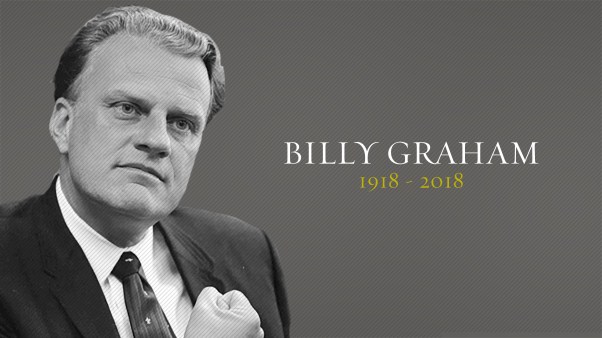Evangelicals Struggle to Preach Life in the Top Country for Assisted Death
Canadian pastors are lagging behind a national push to expand MAID to those with disabilities and mental health conditions.
The Evangelicalism of Jimmy Carter
The former president, who turns 100 on Tuesday, was elected while serving as a Southern Baptist deacon. But he was never fully welcomed by white evangelicals as one of our own.
A Subtler Political Idolatry
We don’t always like our presidents. But we’re apt to exalt the presidency.
There’s Always Been ‘Extra Stuff’ in the Bible
New Testament scholar Garrick V. Allen explains the long history of paratext.
Our Perennial Political Temptation
Reckoning with a half-century of American evangelicals’ pursuit of a “seat at the table.”
Today in Christian History
October 6
October 6, 1536: English reformer William Tyndale, who translated and published the first mechanically-printed New Testament in the English language (against the law at the time) is strangled to death. His body is then burned at the stake (see issue 16: William Tyndale).
October 6, 1552: Matteo Ricci, the first Roman Catholic missionary to China, is born in Macareta, Italy. Other missionaries criticized his complete adoption of Chinese customs and alliance with Confucianism (which he believed merely a civil cult, unlike Buddhism and Taoism).
The Evangelicalism of Jimmy Carter
The former president, who turns 100 on Tuesday, was elected while serving as a Southern Baptist deacon. But he was never fully welcomed by white evangelicals as one of our own.
A Subtler Political Idolatry
We don’t always like our presidents. But we’re apt to exalt the presidency.
There’s Always Been ‘Extra Stuff’ in the Bible
New Testament scholar Garrick V. Allen explains the long history of paratext.
Our Perennial Political Temptation
Reckoning with a half-century of American evangelicals’ pursuit of a “seat at the table.”
PEOPLE IN CHRISTIAN HISTORY
Dorothy Sayers
Mystery writer and apologist
Augustine of Hippo
Architect of the Middle Ages
C.S. Lewis
Scholar, author, and apologist
Dietrich Bonhoeffer
German theologian and resister
Athanasius
Five-time exile for fighting “orthodoxy”
Harriet Tubman
The “Moses” of Her People
Catherine Booth
Compelling preacher and co-founder of the Salvation Army
William Wilberforce
Antislavery politician
John Knox
Presbyterian with a sword
Dwight L. Moody
Revivalist with a common touch
Billy Graham
Evangelist to millions
Thomas à Kempis
Author of the most popular devotional classic
Perpetua
High society believer
Justin Martyr
Defender of the “true philosophy”
John of the Cross
Spanish mystic of the soul’s dark night
Teresa of Avila
Carmelite mystic and feisty administrator
Oswald Chambers
Preacher who gave his utmost
Joan of Arc
The courageous and controversial teenager who saved her country
Søren Kierkegaard
Christian existentialist
A Short History of Parental Rights
Christians in America enjoy the right and duty to educate our children as conscience dictates, thanks to a balanced legal tradition.
He Told Richard Nixon to Confess
Most ministers were silent about Watergate. Why was one evangelical pastor different?
Presidential Debates Can’t Help Us Face the Future
Character matters more than talking points in choosing a leader. And it’s hard to know what questions to ask about it.
Three Evangelical ‘Founding Fathers’ and Their Complicated Relationships to Slavery
A new book steers between full condemnation and “men of their time” dodges.
Trending in History
-
The Evangelicalism of Jimmy Carter
-
Trump Becomes the First President Since Eisenhower to Change Faiths in Office
-
There’s Always Been ‘Extra Stuff’ in the Bible
-
What is the origin of the Christian fish symbol?
-
Why are Protestant and Catholic Bibles different?
-
The Mystery of Original Sin
Trending topics
Love in an Attention Crisis
Readers of the Latin Bible could see how close love and diligence are.
One of Oldest Books in Existence Sells for $3.9 Million
An ancient codex, containing perhaps the earliest complete versions of Jonah and 1 Peter, went up for auction and sold to an anonymous bidder.
Billy Graham Preached at His Crusades. His Singers Believed They Were Preaching Too.
A late historian explores how crusade hymns told both the classic story of gospel salvation and the evolving story of evangelical worship music.
Can a Secularizing Nation Have a Christian Soul?
One of England’s finest writers surveys the past and present of English faith.
The Bible’s Development Is a Messy Story, but It Can Bolster Our Faith
If anything, the historical details are even messier than Susan Lim’s new account allows.
Are the Global Methodists Evangelical?
Here’s why the new denomination may or may not fit the label.
Reading the Bible with Women
The caricature of Rahab and other female characters in Scripture often sidelines their contribution.
Mamie Johnston: A Brave Missionary in Manchuria
Bandits, Japanese invaders, and Communists all threatened her life. Her dedication never wavered.
Why John MacArthur Is Wrong About MLK
The prominent pastor’s claim that Martin Luther King Jr. was “not a Christian” is not only ahistorical. It misses God’s heart for justice.
How Evangelicals Became a Voting Bloc
Evangelical voters’ focus on policy over character came much earlier than you think.
Conversations on Faith, Mission, and Black Leadership
A special Black History Month roundtable from CT and Seminary Now.
Wang Zhiming: Miao Martyr Memorialized in Westminster Abbey
He was tortured for his faith but remained steadfast through the Cultural Revolution.











































